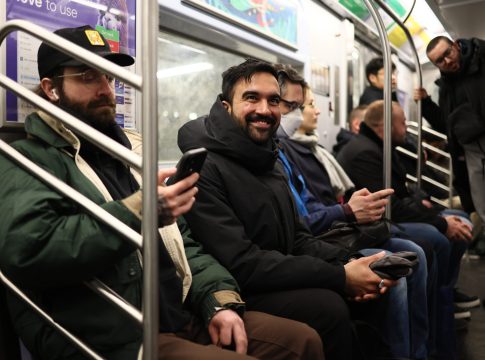Fare Evasion Debate Intensifies in New York City: Safety and Revenue at Stake
As New York City gears up for the upcoming mayoral race, a controversial topic is emerging among Democratic candidates: fare evasion. All seven candidates vying for the Democratic nomination—including high-profile figures like former Governor Andrew Cuomo and Assemblyman Zohran Mamdani—have expressed their opposition to increasing penalties for fare evaders. This stance has raised significant concern regarding public safety and the financial viability of the Metropolitan Transportation Authority (MTA).
Candidates’ Positions on Fare Evasion
Critics argue that the candidates’ refusal to address fare evasion could jeopardize the safety of subway riders. Former NYPD Commissioner Ray Kelly emphasized the link between fare evasion and other criminal activities, stating, “In previous administrations, proactive fare evasion enforcement has been a powerful tool in reducing overall subway crime.” Statistics reveal that many individuals arrested for fare evasion also have prior criminal records. In 2023, about 45% of those arrested for fare evasion were already wanted for other crimes, with almost 10% carrying weapons.
Financial Implications
The impact of fare evasion extends beyond safety concerns. The MTA is currently facing an $800 million revenue shortfall due to fare evasion rates, which account for approximately 14% of subway riders and nearly half of bus riders falsely using the transit system. Governor Kathy Hochul’s proposed congestion pricing is aimed at addressing this deficit, but critics argue that law-abiding citizens who follow fare protocols are being penalized unnecessarily.
Legislative Actions and Controversy
In January, MTA Chief Janno Lieber urged district attorneys in Manhattan, Brooklyn, and the Bronx to consider prosecuting persistent fare evaders, calling the issue “the No. 1 existential threat.” However, there has been little movement toward stricter enforcement. Legislative proposals have even suggested decriminalizing fare evasion completely, as introduced by State Senator Cordell Cleare, a move that has faced backlash.
In 2017, former Manhattan District Attorney Cyrus Vance Jr. declared that fare evasion would no longer be prosecuted, a decision that has led to a significant increase in fare evasion incidents and, correspondingly, violent crime within the transit system. In fact, from 2019 to 2024, fare evasion cases reportedly doubled.
The Call for Change
Mayor Eric Adams, who is running as an independent, has been vocal about the need for tougher enforcement against fare evasion, warning that complacency may lead to broader criminal behaviors. His perspective is echoed by Republican candidates like Curtis Sliwa and Richie Barsamian, both advocating for stringent measures to combat fare evasion.
With the election drawing near, voters are urged to reflect on the candidates’ positions regarding fare evasion. As the city’s transit system grapples with safety and financial challenges, the approach taken by future leaders will likely set the tone for New York’s public safety landscape.
The debate over fare evasion is not just about tickets; it’s about prioritizing the safety and integrity of the city’s transit system and ensuring accountability for criminal actions. As New Yorkers continue to navigate these issues, the outcome of the election may steer the future of the subway system and its riders.

Focuses on crime, public safety, and regional events.
Bio: Marcus is a community-based journalist passionate about reporting impactful stories that matter most to readers.

